
"A decade, is that a long time or no time at all?"
Going into The Last 10 Years there was no denying what type of movie I would be watching-a story about a young woman with a terminal illness based on a true story. But as with any genre, it’s how the story is implemented as to whether it touches you or not. The moment the director cues the violins and tries to manipulate my feelings, I tend to dig in and become resentful. This film was quite the opposite. While the music was emotional and lovely, the story slowly unfolded allowing the characters to make their way through decisions about life, death, relationships, and whatever the future means.When Matsuri is in the hospital she is given a camcorder by a dying mother and admonished to, “Live every minute to the fullest.” That advice is hard to follow after she returns home and boredom overtakes her. Diagnosed with Pulmonary Arterial Hypertension her list of restrictions and medications is quite long. She goes to a middle school class reunion where no one knows about her illness and reconnects with old friends. The standard questions arise about marriage, children, and work. Kazuto, a boy she doesn’t remember, attempts to reach out to her. Kazuto has his own issues with life and death and before long, he, his friend Takeru, Matsuri and her editor friend, Sanae, begin to hang out. In the dark about her illness, Kazuto is clearly smitten but Matsuri has her daily grind with avoiding death to deal with as well as her loving but concerned family.
Matsuri and Kazuto both had their issues with life’s disappointments and whether death would be a tragedy or a gift. As they grew closer, both began to embrace life more. For Kazuto, the future held promise and an unknown amount of time. For Matsuri, tomorrow was always in question knowing her time was imminently finite. No one gets out of this life alive, but for Matsuri, that harsh reality faced her every day. I was happy there was no countdown clock as if the 10 years prognosis was ironclad. The median life expectancy for someone with PAH is 5 years. Each crisis she faced could have been her last. The film didn’t throw roadblocks into her relationship with Kazuto just for the standard effect. Matsuri not only had to take Kazuto’s feelings into consideration but her own as well. She did what she needed to do to be strong enough to face death.
Komatsu Nana gave a beautifully nuanced performance as Matsuri. Layers of emotions peeled forward and back as she portrayed Matsuri dealing with her day-to-day struggles with Death hanging over her shoulder. Ever aware of her parents’ pain, she put a mask on for them most of the time and for her friends. When the dam finally broke and her fears and disappointments rolled over her, Komatsu’s performance was raw and real. Ever cautious with Kazuto so as not to get too close, but staying close enough to bask in his warmth, you could feel the walls she kept carefully erected. And finally, as Matsuri’s body began to collapse, the slow acknowledgement of a clock ticking down.
Whatever Matsuri gained-a relationship, a job, a friendship, she was always aware how close she was to losing them. Yet she still found the strength to try. She was searching for meaning and just the simple experiences of living. I was here. I lived. I loved. And in her strength, she gave Kazuto a love for life as well.
“My life might look like just another boring existence but you’ll always be with me.”
16 May 2024
¿Te ha parecido útil esta reseña?

"This is personal" Well, of course it is...
Triple Threat had an embarrassment of martial artists riches and also embarrassingly bad dialogue, even for an action movie. The martial arts were also short shrifted in lieu of guns and things that go boom far too often.Payu and Long Fei have been hired to help with a “humanitarian” mission that turns out to be anything but. Local security for the site, Jaka, loses his wife in the deadly firefight that erupts when the mercenaries enter the village to release Collins, a notorious terrorist. Payu, Long Fei, and Jaka develop a tenuous partnership to bring down the mercs and end up protecting a Chinese heiress/local philanthropist along the way.
The firefights were often over the top as the bad guys mowed down people throughout the small country of Maha Jaya. Things were always more interesting when the guns were down and the fists and kicks were up. Tony Jaa, Iko Uwais, and Tiger Chen all have experience with fighting on screen and choreography. The weakest of the three was Tiger as his fights often looked slow and uninspired. Tony and Iko were far more entertaining as they defied gravity with their flexibility, quickness, and strength. Bad guy, Scott Adkins, was able to keep up with the kicks as was Michael Jai White. Jeeja Yanin had what amounted to a glorified guest role and didn’t have many chances to show her skills.
The action came fast and furious with the fighters and heiress on the run. Unfortunately, some of the acting and much of the dialogue was painfully cringeworthy. Not much effort was made to create a cohesive story either. As a check your brain at the door, let’s watch Tony Jaa fly and flip, it was rudimentary martial arts action entertainment.
15 May 2024
¿Te ha parecido útil esta reseña?
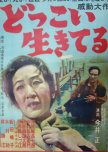
"There's no such thing as easy anywhere these days"
Dokkoi Ikiteru aka I Still Live was a painful look at the most vulnerable in Japan post WWII. Director Imai Tadashi who dove into socially conscious movies after the war, made this film outside of the major studios. I will admit to only grasping the large parts of the film as the only available copy I could find used auto-generated English subtitles which were lacking to say the least. Until such time as someone who watches this who speaks Japanese or there is an adequate translation, I’ll leave a quick review for those who might be interested in this film.The film centers on a Japanese family of four. They initially live in a small shantytown but are forced to move out when it is torn down. The father rises early every morning to apply for day laborer jobs along with crowds of desperate people. It is a daily struggle to earn enough money to eat and supply shelter. Many of the places where the father works amongst the rubble and ruins had been hit hard by the air raids during the war. At one point in time, the mother and two children take the train out of town. At first it looks like the father may find a manufacturing job and his luck will turn for the better, but alas, not in this melodrama. Everything goes from bad to worse, some of the injuries self-inflicted, until he reaches the point when he thinks they would be better off dead. A precipitous action will determine the course he takes.
While this film highlighted a desperate time for many after the war and has value in edification of its historical setting, I found the film to be too deliberately maudlin for me. The music was heavy-handed and overwrought as the little family suffered misfortune after misfortune. Yet the performances were strong and again, it covered an important subject, though at times it did feel more educational in nature. If you enjoy older films and especially ones set in this difficult time in Japan’s recovery, this would be a film to try.
14 May 2024
¿Te ha parecido útil esta reseña?
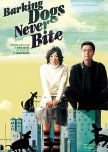
"Nobody in this country follows the rules"
Barking Dogs Never Bite was a dark comedy that darkly commented on social inequalities and inadequacies. While director Bong Joon Ho cast his view on numerous topics, the result was rough and flat instead of subtle and biting. More of a scattershot approach than guided missile.Yoon Joo hears once again why he has been passed over for making professor, made worse by the barking of a dog in the background. He thinks he’s tracked down the culprit, grabs it, and ultimately locks it in a wardrobe in the basement. Hyun Nam works in the building and helps a little girl put up signs for the missing pup. At this point different characters become involved with the four-legged dwellers in the crowded apartment building, most of which have ulterior motives for the pets.
Though the movie clearly stated no animals were harmed during filming, there was some rough treatment. Dog lovers may have trouble with a few of these scenes. The antipathy Yoon Joo felt toward the pampered animals and their doting owners turned out to be more than what he observed. He thought his life was tougher than others, but as it became apparent, his actions led to agonizing pain for the pet owners with devastating consequences for one.
Billed as a dark comedy, I only found two scenes funny and both involved the talented Bae Doo Na. This story played out like a sinister slice of life with few repercussions for bad behavior. Hyun Nam’s unending search for affirmation had its own strange results. I thoroughly enjoyed the close friendship between her and Jang Mi, the complete antithesis of Yoon Joo’s toxic marriage.
The laundry list of social grievances were thrown out on the screen continuously. Suffice to say, the director had complaints he wanted to get off his chest. Class distinctions. People don’t follow the rules. People embezzle money and make shoddy, dangerous buildings. Pregnant employees are treated terribly. School deans have to be bribed for job openings. Humanities professors make the worst husbands. Women with children are vulnerable when husbands leave. For a homeless person being arrested is a blessing because at least there are regular meals. Some drinking culture situations turn deadly. Gender inequalities. Abusive, loveless relationships. Dangerous pesticides thickly sprayed in the air. Exit doors and stairwells blocked by junk creating hazardous situations. People supplementing their diets with dead pets. People fired for caring too much about others. At least later in his career, Bong would grab a singular social criticism by the neck and devour it with satire and venom.
Fans of Bong Joon Ho will most likely see deeper into this film than I did and enjoy it more. I wouldn’t want to deter anyone from trying this film by the famed director. What it boiled down to was Yoon Joo and Hyun Nam were unhappy with their situations and unsure how to make things better or even if they could, given the employment climate and chose inverse approaches. Yoon Joo took the villain role and went to the dark side. Hyun Nam desired to be a hero and though her results weren’t glorious, she and her friend chose to live in the light come what may. The majority of other characters resided somewhere in the gray areas, just trying to make it through their days.
13 May 2024
¿Te ha parecido útil esta reseña?
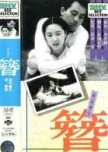
"The sun will show me the way"
While the world was falling into mortal turmoil and the stage was being set for a devastating war, Ornamental Hairpin found a group of people at a quiet inn nestled in the mountains where they could experience healing, friendship, and some moments of respite.Professor Katatae has come to the inn and hot springs for the summer to read. His ruminations are often ruined by traveling parties visiting the inn, making noise and hogging the masseurs. Emi and her friend Okiku are two such pilgrims enjoying themselves. The Hiroyasus have befriended both the professor and a Go playing grandfather staying there with his two grandsons. A young soldier, Nanmura, accidentally steps on a hairpin in the hot springs, extending his stay at the inn. While Katatae continues to grouse about the injury, Nanmura sees it as poetic. Now everyone is concerned whether the hairpin belongs to a young beautiful woman so as not to burst Nanmura’s poetic bubble, misunderstanding his meaning. Turns out the hairpin belongs to Emi and she returns to collect it and apologize. The group takes her in and she decides to stay there with them for the summer, much to the chagrin of a man she left behind in Tokyo.
Ornamental Hairpin was a simple, tranquil story, but not simplistic. Emi may have been the focal point of the story, but this was an ensemble cast of disparate characters who fell into an easy friendship while on vacation. They ate together, soaked in the springs, complained about the food, and even slept uneasily together with the snoring Professor and Grandpa keeping people up at nights. The grandsons Jiro and Taro whined about the sameness of the days but also took time to help Nanmura recuperate and exercise along with Emi. It is in Emi where the story transcended an uneventful vacation romp. She learned to do laundry and enjoyed spending time with the boys. Here where the sun could touch her face she began to long for something more in her life. She was looking to find meaning. While she was drawn to Nanmura and he to her, his life was back in the military and the coming war. When everyone else was preparing to leave, she remained behind, unsure of where she wanted to be and more importantly, who she wanted to be.
The acting was quite compelling. Saito Tatsuo as the Professor, brought the comic relief with his constant state of complaining. Especially when he railed against the noise then kept everyone up at night with his snoring. But it was Tanaka Kinuyo and Ryu Chishu who gave the heartfelt performances. Tanaka and Ryu were forces to be reckoned with in Japanese cinema. Ryu was an Ozu regular, but often as the father, older brother, or patrician friend. Tanaka excelled at playing women in more desperate circumstances. Here they were youthful and the romantic leads, even if the romance was not fully developed. They supported each other, gently and playfully, one time literally when she gave him a piggyback ride! They were soft and almost unrecognizable in these strangely easy-going roles. Tanaka conveyed the longing of her character for the sun on her face and freedom in her life beautifully.
Ornamental Hairpin was the ideal summer vacation for a group of people who became friends over dinner and soaking in the healing waters. Idyllic scenes of bubbling rivers, mountains, and trees gave way to reality calling again. A hint of melancholy also floated through the mists with the already present food shortages and war looming on the horizon. Emi, walking alone on the paths they’d traveled together had to discern the path ahead for herself. This film captured a cozy, funny, bittersweet moment in time for a group of strangers who became friends and faced uncertain futures.
12 May 2024
¿Te ha parecido útil esta reseña?

"Times change, so do we"
Juhan Shuttai turned Vibes’ publishing world on its head with the addition of a force of nature to a manga editing department in the form of Kurasawa Kokoro, a former judo star. Surrounded by men day and night, Kokoro used her training to learn the ropes and forge professional relationships with the oddball crew of writers and editors.After an injury causes Kurosawa Kokoro’s judo career to end she decides to work in manga editing. Twenty interviews later she lands a job at the manga magazine Vibes, the #2 magazine. Before long she is training with the rational Iokibe and butting heads with the cynical Yasui. She meets a successful senior manga creator who is struggling with his artwork and an eccentric hat wearing writer whose volatile love life threatens deadlines. Kokoro cheerfully helps to come up with solutions to the deadline and creative problems. Her mantra is always “Do your best!” Now she needs to develop her own writers and fulfill her desire to publish a sleeper hit.
This was a strange world where most women, aside from Kokoro and a couple of others, lived on the periphery. Most of the work was about the men. Kokoro seemed to be hired because she was an unorthodox woman. In real life she would be exhausting to be around. She stayed aerobically fit by running, always taking the stairs and talking so loudly, so enthusiastically, and so fast she often gasped for air. She lived in a world inhabited by mostly men. I come from a place where the majority of publishing editors are women so seeing the editing and sales departments with zero women except for Kokoro was staggering. Management was entirely male. Only one of the ten manga writers was a woman which was interesting given that 66-70% of mangaka are female. And the sole female artist was repeatedly said to have “hangups” and was only there to be taken advantage of. None of the eight manga assistants were women. The invisibility of women made it all the more visible they weren’t there when they should have been, at least as artists.
Juhan Shuttai discussed the changing environment for mangas, how e-books and closing bookstores affected the business. Lower sales caused the bottom line to be critical for the triumvirate of manga artists, publishers, and booksellers to all stay in the black. The editors and booksellers fought to keep manga relevant and selling in an ever changing market.
The problems that arose weren’t earth shattering and usually had simple solutions that fixed everything. This was a joyful, carefree watch where good actions and positive thinking were stressed. Luck could be accrued by acts of kindness and most characters learned lessons about life and happiness. If you are down and need something encouraging this would be a good choice. Despite me wanting to find the volume button to turn down Kokoro’s unrelenting enthusiasm at times, it was a nice “pick me up” drama to watch.
12 May 2024
(7.75)
¿Te ha parecido útil esta reseña?

"I became a gangster because of a chicken leg"
Director Doze Niu set Monga in the 1980’s replete with terrible hairstyles and requisite Air Supply music. The five boys of the Gang of Princes had enough daddy issues to ask for a group rate at their local therapist’s office. The boys also dealt with the daily violence on the streets, betrayals, death, and unrequited love.Mosquito’s father died after he was born and he’s been bullied everywhere he and his mother have lived. The bullying begins again at his new school over the chicken leg in his lunch. After school, Dog Boy and his crew jump Mosquito but the new kid acquits himself well and the real power gang led by Dragon Lee and Monk take notice and take Mosquito under their wing. While Dragon Lee is the leader due to his dad’s gang status, Monk, his second in command, provides the muscle and the brains. The boys become sworn brothers and spend more time together hanging out than in school. Life can be precarious on the streets as the brotherhood find out after a deadly mistake has repercussions, a secret touches the wrong ears, and a new player comes to town unafraid to shake up the old way of doing business.
Triads, gangs, and boys’ gangs have all been done. Doze put his own Taiwanese flair on Monga. The crowded, brightly lit streets deserved their own screen credits. The scenes were as loud and chaotic as the story. While there were plenty of fights, they often came across more balletic, especially with the soothing music playing in the background and slow-motion shots. Monk and Mosquito were the focus of the main plot and subplots. Monk’s feelings for Dragon Lee ran far deeper than brotherhood. He protected Dragon Lee from his own worst inclinations and took the punishment for his actions from Dragon’s gang boss dad. Monk also had his own aspirations and deeply held resentments. Mosquito was the innocent one of the crew. He was looking for family, for brothers, for connection---for a father. Much of the narration was told through his naïve eyes. Perhaps to bring a feminine element into the film or to give Mosquito a soft shoulder to lie on, Ning, a prostitute was introduced. Around the same age, the two fell into a tender friendship, limited by her contract at the brothel. Doze played the Mainland triad leader determined to take over Monga and who also had a connection to Mosquito and his mom.
Mark Chao in his film debut provided the character who could show horror and fear when called upon for the audience. At times a little stiff, but overall, a good first film performance. Ethan Juan was both mesmerizing and terrifying as Monk. With good reason he won the Golden Horse Award for Best Leading Actor for his primal portrayal of the young gangster. Rhydian Vaughan didn’t have as much to do, although he was saddled with the worst mullet outside of a redneck truck stop in 1980’s Texas. The veteran cast gave the proper gravitas to the criminal adults in the room.
The first half of the frenetic movie was all about bonding and hanging out, and navigating the different groups and their territories. When there was no turning back, the shift in tone was cataclysmic and there was no denying that blood would be shed, and vows would be broken. When war came to Monga, no one was ready for the consequences, not even those who thought they were above it. Blood would flow like cherry blossoms.
10 May 2024
¿Te ha parecido útil esta reseña?

"I had no regrets until I met you"
Happy Together was a haunting, gut-wrenching look at love and loneliness with stellar performances by the main cast. Tony Leung Chiu Wai and Leslie Cheung played an on again, off again couple who were often lonelier when they were together than when they were apart.Ho Po Wing and Lai Yiu Fai have traveled from Hong Kong to Argentina. On a trip to see the Iguazu Falls they become hopelessly lost and Ho breaks up with Lai and not for the first time. Lai finds work as a club doorman while Ho starts turning tricks to make a living. As Lai watches Ho with other men, a deep sorrow and homesickness overtakes him. He doesn’t want to inevitably “start over” as they usually do, he wants to go home to Hong Kong. He needs to make enough money first. When Ho is beaten by one of his clients, Lai lets him in and takes care of him, but refuses to sleep with him. At a new job, Lai makes friends with Chang, a young man from Taipei, which causes friction between the two lovers.
Ho and Lai were in a “can’t live with him, can’t live without him” dynamic. Ho had a reckless streak that Lai tried to tame, but would cause Ho to chafe at the constraints. Every scene was filled with raw emotions-longing, agony, passion, and despair. While Leslie Cheung gave a wonderful performance as the erratic Ho, it was Tony Leung who captivated me with his. I’ve seen Tony in numerous films, but this was the best performance of his I’ve seen so far. He has never had a problem with the too cool for school vibe, but in this film, he tore through emotions left and right without going over the top. It was impossible to not empathize with Lai when the heartache and misery were visibly eating away at him. In a scene where Ho taught him how to dance, the desire not just for this man, but also a longing for something more, something unattainable was quite moving.
A young Chang Chen as Chang Wan brought a breath of soothing air into Lai’s life. The friendship was easy and a reminder of home. Chang had a tender scene as he tucked a sorrowful, intoxicated Lai into bed. Their friendship was a lifeline for the floundering Lai. When Chang left Buenos Aires, Lai was truly adrift and found that “lonely people are all the same.” Lai became more convinced he did not want to ever “start again” with Ho, regardless of his deep feelings for him. Ho was like the prodigal son who had to occasionally self-destruct knowing that Lai would always be there for him in some capacity.
This film had Wong Kar Wai’s trademark palette of greens, yellows, and reds along with scenes in black and white. There is no denying his aesthetic gift, but sometimes I don’t connect with the story he’s telling. Happy Together connected everything for me. The plot was thin, almost non-existent, as these men struggled to make a living and struggled to alleviate their desire to return home and to somehow survive their complex disparities. I thoroughly enjoyed the varied music, which ranged from Tango Apasionado to fittingly enough, Happy Together originally by The Turtles. The songs flowed naturally through the film as stark emotions ebbed and rose.
Happy Together’s unflinching exploration of a tempestuous relationship was hard to watch at times, but impossible to look away from. Tony Leung peeled back his stunning façade and poured out an impressive array of emotions both nuanced and heartbreakingly real. Much like the Iguazu Falls, Ho and Lai’s bond was powerful, chaotic, captivating, murky, and completely unforgettable.
8 May 2024
¿Te ha parecido útil esta reseña?
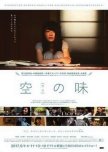
"Do you think monsters are afraid of themselves?"
Seventeen-year-old Satoko struggles with an eating disorder and sense of alienation from her family and friends as she deals with her hidden eating habits alone in Taste of Emptiness. Director Tsukada Marina drew from her own experiences in the making of this independent film. Both heartbreaking and hopeful, Taste of Emptiness didn’t shy away from Satoko’s daily confrontations with her obsessive behaviors and the desire to overcome them.Satoko and her friends, Yuko and Kanae, belong to the dance club and are preparing for a competition. The talk in the dressing room often revolves around weight and boys. At home, Satoko goes to the frig, hungry, but concerned about the calories in the food. When she does succumb to pudding she exercises afterwards. Her anxiety and OCD behaviors gradually grow worse as she begins to binge and purge. Her father notices she’s not eating but her mother chalks it up to a small appetite and the changing seasons despite Satoko’s weight loss. When her older brother realizes she's purging, the men organize an intervention at dinner against the mother’s wishes. After words held tightly for too long coming spewing out, Satoko leaves to stay with Kanae. Her problems only escalate in the new environment and soon she’s not going to school and drops out of dance. When she runs out of money, she returns home and begins therapy. While waiting on the doctor, she meets Maki, an “evening office worker.” The two become friends and spend time together. Satoko begins to understand Maki’s problems run deeper than they appeared at first glance, yet the unorthodox woman’s acceptance of her as she is bolsters her confidence.
Taste of Emptiness used an array of symbolism for Satoko’s emotions such as being underwater and wearing a Noh mask to hide her inner feelings. When she confronted her family at the intervention you could see her withdrawing into herself, the pain palpable and intensifying. Confused and scared of people discovering how confused she was, she vacillated between being angry at her family and angry at herself. “When I’m invisible, I can relax.” Satoko’s mom had to fight through her own denial about her daughter’s condition. Eventually, both mother and child worked to find a better place between them.
Reasons for eating disorders are as complicated and varied as the means for healing them and this film didn’t take any shortcuts or give any easy answers. Satoko worked with a doctor, medications, her family, and her friends. Maki’s influence on her also came as a double-edged sword though it did seem to jumpstart her healing. Taste of Emptiness was a slow paced jarringly realistic film about one teen’s search for healing and meaning as she dealt with the “thin ideal” and coming to accept she was okay even when she didn’t feel okay.
“I hope you can be who you want to be.”
“Even if I’m crazy?”
“You have to start somewhere.”
7 May 2024
¿Te ha parecido útil esta reseña?

"Impossibilities are what make this world interesting"
The Sealer was a short drama involving a secret organization that seals blades filled with “filth” such as malice and hatred and causes the humans wielding them to disappear. A reporter who can see the evil black haze emitted from the demons and swords becomes involved with the group and aids in needed research to help one of their own.The premise of the story was interesting if dark. Anyone dealing with anger or other strong emotions could become a victim of the sword and then be turned into mindless killers, even good people. The Sealers absorbed the “filth” from Blades of Filth until they could no longer contain that “filth”, then they were eliminated lest they become demonic as well. Not a great retirement plan or selling point for new candidates. Over the centuries, no one figured out how to resolve some of the more problematic issues. Karen, the maker of the scabbards that sealed the evil blades, believed that scabbards could be made that would save the humans attached to the blades and grant them the ability to atone for their deeds instead of disappearing. The blades were similar to Mordor blades, wounds caused by them would never heal.
Most of the characters were flatly drawn and acted. The characters wore basically the same clothes throughout the episodes. Sanjo, the overly earnest reporter, needed a pair of trainers as many times as she fell down and couldn’t get back up. In fact, characters falling down and being unable to stand afterwards was a common theme. I counted at least nine times it happened, as if they were all part turtle with no way to get up once down.
The Sealer was entertaining for a short drama, but being so short often left the characters underdeveloped as well as the story. There were times characters just stood around and watched what was happening with little to do. Many of the action scenes felt redundant, yet the stakes were high. For the most part The Sealer kept my attention except when I wasn’t wondering what evil spell caused people to freeze on the floor instead of attempting to escape a sword wielding demon.
6 May 2024
¿Te ha parecido útil esta reseña?

Didn't blow me away
Police Story 2 brought back much of the cast from Police Story, including the divine Maggie Cheung. Even with two different sets of bad guys and some pyrotechnics, the story dragged badly in comparison to the first and third movies of the series.Chan Ka Kui finds himself demoted to traffic cop after the destructive events of the first film. To make matters worse Chu Tao is given a compassionate care release. Chu's assistant Koo and his henchmen harass both Chan and May repeatedly. After a run in with the baddies in a restaurant and a children’s playground, Chan is called on the carpet by his bosses. This time he’s had enough and resigns. He no more than turns his badge in when blackmailing bombers threaten a company by blowing up one of their malls. His superiors talk him into coming back to work and he joins an elite surveillance team to track down the evil doers.
PS2 struggled with its identity. The murderous bad guys from the previous film were played up for comic effect in this one. Honestly, most of the scenes committed to Charlie Cho’s Koo felt more like padding and did nothing to drive the narrative forward. At 2 hours, the movie was already bloated for a 1980’s action flick. While there were a couple of good fights as was expected from a Jackie Chan movie, there wasn't the same excitement as in PS1 and 3. Given the outtakes, several people were hurt including Maggie Cheung. She endured a serious head injury, serious enough she couldn’t finish the film which was obvious because after the stunt you never see her face again. Much of Chan’s stunts in the last thirty minutes involved being set on fire. There were two impressive explosions but buildings blowing up don’t make up for terrible pacing and lackluster storytelling.
There were several interesting guest appearances. Wu Ma showed up as a mall cop. Lau Ching Wan made a brief showing as a CID officer. Charlie Cho’s main reason for being in the film seemed to be for the comic effect of having his glasses invariably broken in all of his scenes, a running gag from the first movie. Benny Lai was one of the official stuntmen from Jackie’s company and provided a sound final opponent for Chan even if his deaf-mute character pushed the limits of poor taste. Mitsubishi trucks and Canon cameras had more scenes than most of the supporting actors. Full moon alert---some of the bit players appeared to have been hired for their tight butts for a comic scene when May chased Chan through the men’s police showers.
While there were entertaining fights and moments, especially in the last thirty minutes, Police Story 2 bogged down for much of the other ninety minutes going back and forth trying to decide if Chan was a loose, reckless canon or a hero. I’m sure many Jackie Chan fans will find this film a blast. But for me, instead of a thrilling, explosive story, the bouncing around of villains and bland dialogue caused the movie to fizzle.
4 May 2024
¿Te ha parecido útil esta reseña?

Jeon Woo Chi: The Taoist Wizard
A 2 usuarios les ha parecido útil esta reseña
"The world has changed." "But people don't change"
Jeon Woo Chi: The Taoist Wizard was an uneven but entertaining movie about a mischievous Taoist sorcerer who battled monsters in 16th century Korea and 500 years later. A magical flute that can control the monsters was at the center of a battle between good and evil as Woo Chi and his trusty sidekick Cho Rang Yi attempted to put the monsters back in their gourds.Woo Chi enjoys bringing attention to himself even when he’s doing it for a good cause and also likes tweaking the noses of the rich and powerful. Armed with magical talismans he performs amazing tricks all of which are frowned upon by his master and sidekick. Rang Yi appears human but in actuality is a dog who can also take the form of a horse. One night Woo Chi crosses paths with another Taoist master, Hwa Dam, and three bumbling shinsuns. These shinsuns are the immortals who accidentally released monsters imprisoned in a heavenly realm by losing track of time while Pyohundaeduck played his magical flute keeping them under control. When the monsters escaped, the flute was contaminated with evil spirits. Both it and Pyohundaeduck fell to earth. The flautist lost his memory and disappeared. Hwa Dam and the shinsuns are searching for the flute. Woo Chi in on the hunt for a bronze sword that will help him become more powerful. After Woo Chi’s master is murdered Hwa Dam and the shinsuns blame Woo Chi and lock him into a painting along with Rang Yi and half of the broken flute. 500 years later the shinsuns release Woo Chi when Hwa Dam is unavailable to fight two dangerous escaped monsters.
Kang Don Won was entertaining as the cocky sorcerer, without his charisma this film would have fallen flat. Yoo Hae Jin is a pleasure to watch and always brings his all to every role even when playing animals. Kim Yoon Seok gave a delightful menace to Hwa Dam. And three competent character actors took on the Three Stooges of heavenly beings. Despite being the FL, Lim Soo Jung wasn’t given much to do until the end.
There was plenty of action both magical and down and dirty fighting between Woo Chi and the monstrous rat and rabbit and their human forms. Wire work abounded and Woo Chi sustained hits even a sorcerer shouldn’t have gotten up from. The CGI was rudimentary more often than not, even for 2009. I didn’t have a big problem with the mediocre CGI but I did have a problem with the editing and lapses in narrative. Some of the story was needlessly confusing and contrived. The actors and action managed to smooth over the ragged seams most of the time.
Though a romance was awkwardly inserted, it didn’t work well for me. This was more a story of a sorcerer and his dog. While Jeon Woo Chi was a lighthearted magical romp, its failure to tie several narrative elements together kept it from casting a spell over me.
3 May 2024
(7.25)
¿Te ha parecido útil esta reseña?

"The soil of Burma is red. So are the rocks."
The Burmese Harp was a WWII film based on a children’s book by Takeyama Michio from 1946. The book was written to help young readers come to terms with Japan’s defeat while demonstrating Buddhism’s emphasis on altruism. Music featured prominently with both the Japanese and British soldiers singing as well as the playing of the titular instrument. This was the kindest, gentlest war film I’ve ever seen as the Japanese soldiers came to grips with their country’s loss and hoping to see home again.A small group of Japanese soldiers are making their way through Burma (Myanmar) to Thailand when they are captured by the British. They learn the war has been over for three days. Capt. Inouye is unsure of what lies ahead of them but says they will face it like men and they will face it together. The Allies ask for a soldier to try and talk a group of holdouts on Triangle Mountain into surrendering. Inouye sends the harp playing Mizushima Yasuhiko and tells him to catch up with them at the Mudon POW camp 200 miles/322 km from where he will be after the mission. Unlike Inouye and his group of singing soldiers, the fanatical soldiers on the mountain don’t care that the war is over. They want to die for their Emperor and call Mizushima a coward. The Brits hit the hideout hard and Mizushima is the only one to survive. A traveling monk rescues him and nurses him back to health. While the monk is bathing in the river, Mizushima steals his clothes and later shaves his head so that he can make the arduous trip back to his men. Along the way he repeatedly comes across the decaying bodies of Japanese soldiers left where they lay. He buries a handful before continuing his journey. When he reaches the Buddhist monastery at Mudon he teaches a young boy a few new chords on the harp (Saung). The next morning he hears singing and finds the Allied hospital staff at the camp singing and praying over a Japanese soldier they have buried. Something inside of him fundamentally alters at this sight and instead of joining his men he turns back to bury the dead. Meanwhile, his men grow ever more concerned at his absence.
This film fell more into fable or fairytale than realistic war drama. Director Ichikawa showed the ravages of war and starvation in his excellent film Fires on the Plain (1959). While the book supposedly touched on Japan’s responsibility for the war and was critical of Japan’s militaristic actions and mindset, this movie veered away from those criticisms. Since the core concept of the film was for children--comfort women, the Nanjing Massacre, and dire reality for Allied prisoners in Japanese POW camps where 40% died was left out. This was a film about healing, friendship, and spiritual transformation in the face of defeat while not shying away from the staggering loss of life from war.
Music played an almost magical role for the soldiers in healing and binding the men together. It also brought out the shared humanity between the Japanese and Allied personnel. “Home, Sweet, Home” was sung by both groups and at one time all together. As Mizushima observed the scattered bodies with birds feeding on them, “O, Sacred Head Now Wounded” played in the background. In typical 1950’s fashion, the men sounded like a professional chamber choir when they sang and Mizushima’s battered saung provided the clear, dulcet tones of an orchestra’s multi-octave harp.
The soldiers longed for home and longed for peace. As they dreamed of returning to their lives in Japan they had no idea of the drastic changes ahead or that many places would be unrecognizable. Mizushima had been reborn while assisting the dead to rest in peace. He had to decide whether to stay in Burma and mend the past or go home and help rebuild his country. While this film may have shown a more idyllic version of humanity it couldn’t hide the horror and monstrous cost of war and didn’t try. This type of meditative, comforting film in the face of upheaval and how humans choose to react and grow was right up my alley. I thoroughly enjoyed The Burmese Harp. “…our work is simply to ease the great suffering of the world…to find the strength to create peace by one’s own example.”
2 May 2024
Home, Sweet, Home (For those too young to be familiar with it)
“Mid pleasures and palaces though we may roam
Be it ever so humble, there's no place like home
A charm from the skies seems to hallow us there
Which seek thro' the world, is ne'er met elsewhere
Home! Home!
Sweet, sweet home!
There's no place like home
There's no place like home!
An exile from home splendor dazzles in vain
Oh give me my lowly thatched cottage again
The birds singing gaily that came at my call
And gave me the peace of mind dearer than all
Home, home, sweet, sweet home
There's no place like home, there's no place like home!”
¿Te ha parecido útil esta reseña?

"Whatever happens, we'll come back for you"
Onoda: 10,000 Nights in the Jungle told the true story of one of the last Japanese holdouts after WWII. Japan surrendered on September 2, 1945. The war ended for Onoda Hiroo 29 years later on March 9, 1974. During his training as an intelligence officer he was told he had to survive at all costs and that "Whatever happens, we'll come back for you.” Onoda learned the hard way that the military was not as loyal to him as he was to the mission.“We will be back for you. We will be back. Whatever happens---survive!”
Late in WWII, Onoda Hiroo fails pilot school because he has a fear of heights and dying. He’s recruited to train as an intelligence officer and in guerilla warfare in December 1944. Before he leaves, his father (mother IRL) gives him a dagger to kill himself with rather than be captured should the need arise. When he arrives on Lubang Island none of the other officers will help him with his mission which was to disable the airstrip and port. Most of the soldiers are hungry, demoralized, and/or ill. The Americans take the island shortly after his arrival. Soon the only Japanese soldiers not dead or captured are Onoda and the three men he chose to work with him---Kozuka, Shimada, and Akatsu. Believing they must hold their ground until more Japanese forces arrive, they set up camp in the jungle and cause damage to the farmers’ fields in order to keep the locals afraid of them. They subsist on whatever they can find or steal, taking up residence in caves or homemade huts. The small group of holdouts refuse to believe the war is over and patiently wait for reinforcements.
“Try to change the way you see things”
Two different actors played Onoda and his second in command, Kozuka. They all performed admirably as the characters aged and learned to survive in the jungle and rely on each other. The film confined most of the shots to the men and their duties which displayed their arduous methods of staying alive. Bound by their limited outside contact, their lives seemed incredibly sad. They were completely isolated and separated from family and loved ones. As much as the film focused on the holdouts it would have been nice to gain the locals’ perspective of the killers in the hills and the fear they instilled for a time.
“They know that what is complicated and even incomprehensible, sounds true!”
My first thought when Onoda’s father handed him the dagger and told him, “Your body is the Fatherland. Do not let it fall into enemy hands,” was the Spartan mothers’ declaration to their sons, “With your shield or on it.” Ordered not to die and trained to unconditionally obey orders, unwilling to return home defeated, and determined to prove himself, Onoda’s psyche was trapped in a nightmare in the jungle of Lubang. The outside world and even loved ones attempted to convince Onoda that the war was over, but he could only see conspiracy theories everywhere he looked, convinced that Japan was still fighting. Eventually, he had access to newspapers, magazines, and a transistor radio but believed it was all an elaborate ruse to trick them. At some point, Onoda’s rigid obedience and views appeared to come across as an over-inflated sense of self. Why would the enemy go to such extraordinary lengths to trick one man? If he was that important they could have sent in a wave of soldiers to kill him or just bombed the jungle. Onoda had a high level of cognitive dissonance as he clung to his beliefs in the face of harsh opposing facts.
“What if we killed people we’re no longer at war with?”
Onoda and his men were resourceful and resilient. The youngest left after nearly 5 years and another was killed after almost nine. When the second in command was killed after 27 years of holding out, it seemed to chip away at Onoda’s confidence. Despite their incorrect assessments, Onoda and his men were a product of their training and propaganda. They truly believed they were serving the greater good by holding their position on the island. It took as much determination as denial to be separated from family and friends, to live on roots and fruit often with only rudimentary shelter for nearly three decades. In 1974 a Japanese adventurer discovered Onoda and befriended him. The young man caused Onoda an existential crisis as the holdout could no longer deny that Japan and the world had changed. The military bore responsibility as well. The loyal soldiers killed 30 inhabitants over the years. Two of the four died pointlessly and Onoda lost 30 years of his life because no one cleaned up the mess they created. These soldiers were imbedded on islands in the last months of the war when the writing was on the wall. VE Day occurred not long after Onoda was stationed on Lubang and Japan surrendered in August of 1945. All it took was for Onoda’s superior to come back for him. Unfortunately, for Onoda, his men and the people of Lubang, it took nearly 30 years to do so.
30 April 2024
¿Te ha parecido útil esta reseña?
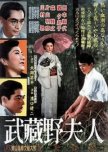
"It's ridiculous!"
Director Mizoguchi Kenji threw me for a loop with The Lady of Musashino. Unhappy marriages, infidelity, and premarital sex abounded in this postwar film. The main couple exemplified the changing lifestyles and social norms being explored as Japan tried to find its footing after everything came tumbling down. Michiko was as traditional in her morals as her husband was laissez faire regarding his.After fleeing Tokyo during the bombing, Michiko and Tadao go to live with her parents. Her family comes from a long line of samurai and the property has been in the family for ages. After her parents die, Michiko inherits it. Three years after the war, her cousin Tsutomu finally arrives home after having spent time in a Singapore POW camp. Tadao is a professor who believes that infidelity is an expression of free will and proceeds to live out that philosophy. He encourages Tsutomu to live in town while attending university so that he can enjoy as much sex as possible. Michiko’s cousin Ono and his wife Tomiko have their own open ideas about marriage fidelity as well. Both Michiko and Tsutomu have a love for Musashino which develops into feelings for each other. Will Michiko’s rigid morality stay in place in the face of handsome Tsutomu’s advances?
Mizoguchi at first seemed to be conveying the idea that women were treated unfairly in marriage and divorce. Tadao was thoroughly reprehensible even as he lauded the new law being passed that would no longer make it a crime for women to commit adultery, men could continue to do whatever they wanted as always. It was difficult to be invested in this story as most of the characters were selfish and unlikeable. Even Michiko’s noble idiocy began to wear thin. Tadao made a mockery of their marriage and her and even tried to leave her homeless yet she still made excuses for him. While it was true that women could become boxed into a corner with few exits, Michiko could only see one due to her narrow views. Like me, love-stricken Tsutomu had trouble understanding her train of thought. When she tried to explain why they couldn’t be together at the moment, “If there are more and more unhappy people, morality will change,” it wasn’t long before Tsutomu replied, “It’s ridiculous!” The moral of the story was pretty convoluted by the end.
What was effective in this film was the camera work. This was a magnificent film to look at even in black and white. Tsumoto’s arrival through the trees and fog was stunning. I would love for it to have been in color in order to bring out all of the hues of the forest and water as Michiko and Tsutomu explored Musashino on several occasions.
Mizoguchi repeatedly stressed how “everyone is running around in a fever with no morals.” The societal anxiety of a postwar Japan was felt in nearly every scene. The decline of traditions represented by the old samurai estate appeared to not only be caused by Western influences but as a reaction to a way of life that led up to the war and during it. Near the end of the war Michiko was given cyanide for the family by the military when she went out to buy their rations. While she thought about taking it, others around her told her how cowardly and ridiculous it was and the same response was given when a family member died “honorably” by taking his life.
The Lady of Musashino was an uneven melodrama and criticism of changing mores. The memory of the “simple, green, beautiful” Musashino that had helped Tsumotu endure while being a prisoner was fading as quickly as the old way of life. Faithful Michiko arduously clung to the traditions of the past and paid a terrible price for her stubborn morality and sense of duty.
29 April 2024
¿Te ha parecido útil esta reseña?

 31
31 98
98 7
7





















